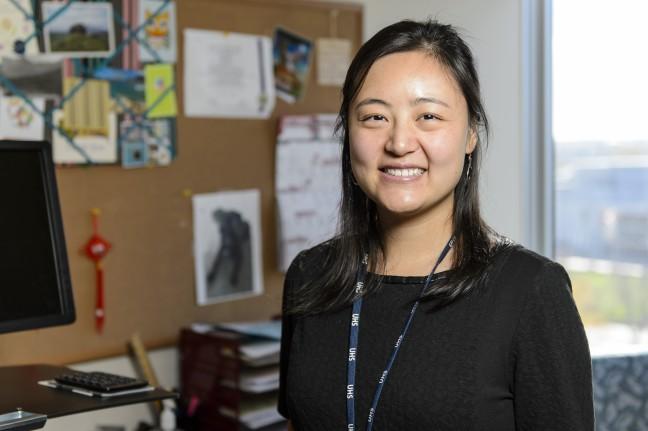Using her past experiences as an international student, University Health Services psychologist Canzi Wang is working to reach out to international undergraduates who may face challenges during their transition to a new country.
Wang first learned about counseling while she was in her home country of China. She said many people who studied psychology were science or medical students, but as a liberal arts student, she was intrigued when she discovered counseling as a profession.
Because she wanted to study counseling, Wang moved to the U.S. in 2005 as a graduate student and earned degrees in teaching English as a second language, as well as community counseling and human services at the College of New Jersey. She later earned her Ph.D. from the University of Denver.
Wang said her interest in counseling came from her interest in human development. And when she learned about student suicide as a freshman, her devotion to the field grew stronger.
“I was just really shocked and felt really sad and also confused because it wasn’t something people would talk about,” she said.
Wang realized she wanted to study counseling after seeing that there wasn’t much discussion about prevention programs for those susceptible to suicide.
But in terms of her own transition to a new country, Wang said it was “really hard,” and she began to notice changes in herself. She considered herself a social and outgoing person, but after moving to a new environment, she described everyday life as dealing with “crisis.” Whether it was understanding a different school system or adapting to a new curriculum, everything to her, including filling out immigration paperwork, was new.
“All of this just felt really stressful. I felt pretty anxious and scared and I had a really hard time going out and meeting people,” Wang said. “Part of it is because of the financial concerns and part of it is just feeling like I’m out of place — I don’t belong here.”
One of the factors she sees contributing to international students’ stress is the fact that they’re constantly focusing on studying, because it is the “main reason” they’re here. She said there’s times when students recognize the large workload they have, but they wait until the last minute before asking for help, which is why she wants to focus on the prevention work that can be done.
Wang said she utilized counseling while in school and it gave her the perspective of being a client and how hard it is to show vulnerability and ask for help. As a generalist — one who provides services for general counseling — Wang has a broad reach. Through UHS, there’s a Mandarin-speaking group therapy, and this semester she is working with International Student Services to offer a discussion group.
She also started a drop-in consultation this semester Wednesdays from 10 a.m. to 12 p.m. that can serve students who are curious about counseling. The sessions are a way to inform students about whether or not they may want to pursue counseling. But she said those who come during drop-in hours can talk about anything they want.
“I would like to connect with a community, doing outreach work with them and making my professional knowledge available for these students so they can use those strategies or coping skills more on a daily basis,” Wang said. “I feel like their experience is being normalized.”













